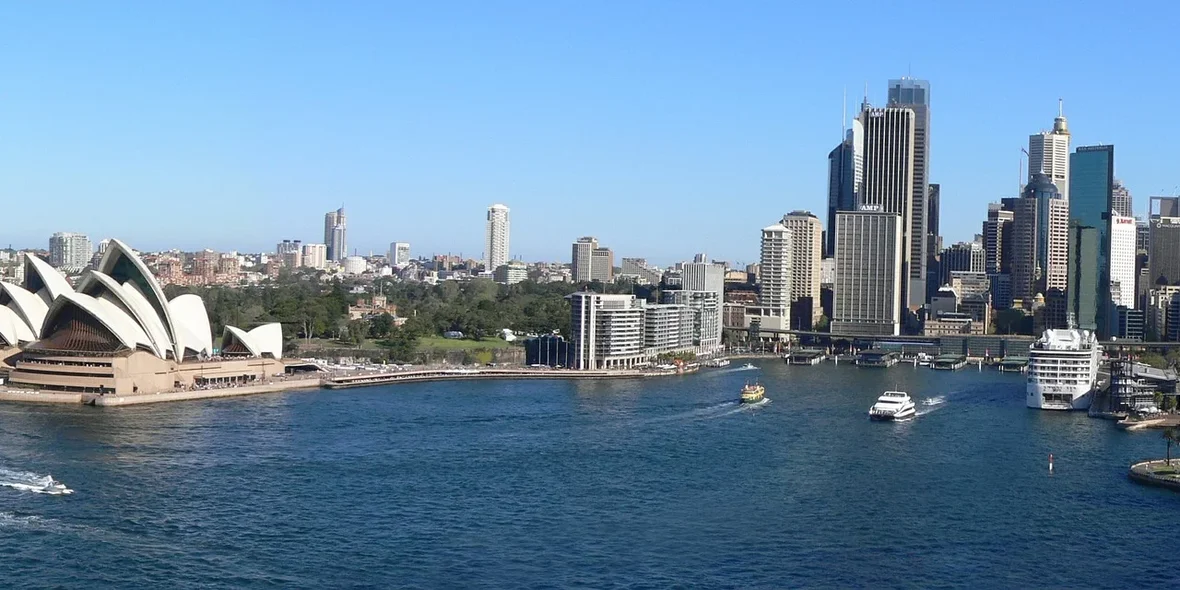
Facts About Australia
A multicultural, multilingual and environmentally diverse island, Australia, situated between the Indian and Pacific oceans; is home to more than 450 diverse cultures with distinctive beliefs and ethnicities, more than 100 spoken languages, around 300 native mammal species, and of course, kangaroos.
Australia today is the ideal place for investment, in any category, financial investment, residential investments, employment ventures, investments in education, and business-related ventures.
The economy has currently undergone its 27th year of annual economic growth; it is the world’s sixth largest pool of managed fund assets. It is the 13th largest economy and accounts to 1.8% of the global economy [according to Austrade]. The Australian economy has been increasing at about 3% on an average annual basis for the past 25 years.
Marking a steady growth, it is a supportive business startup ecosystem for ambitious entrepreneurs and emerging businesses. The key global sectors, today, include tourism, education, financial services, agribusiness, resources and energy.
A major provider of mineral and energy resources to the Asian market, Australia is the largest producer of iron ore, gold and uranium. Its economy integrates globally, and contributes significant growth to the Asian economy.
Today, the country welcomes more than 100,000 immigrants annually wishing to take part in the Australian community.

Become an Australian Citizen and Visas
In January 2019, around 16,000 immigrants, living in Australia, were granted citizenship. There are many options to follow through, if deciding to immigrate to the land Down Under; a permanent residency can be acquired based on employment, investment, family-relations or marriage.
The first step is to explore all visa options suitable for you [and your family], there are more than 20 types of working visas and more than 30 family-related visa options.
Generally, employment opportunities tend to cover the entirety of a stay, with family members. A residency of at least four consecutive years is a prerequisite for those wishing to apply for citizenship.
Children below 18 automatically acquire citizenship simultaneously with parents.
Healthcare
Public healthcare in Australia is known as ‘Medicare Services’ and is an optional enrollment service. Australian citizens, permanent / temporary residents, and visitors may apply and benefit from lower pharmaceutical costs and free/lower medical costs in public hospitals.
The public healthcare system allows access to a General Practitioner, primary healthcare, Allied health practitioners, After-hours General Practitioners, the Emergency Department, and Specialist services.
Private health insurance is another option, especially when looking into covering a broader range of medical costs. Independent insurance companies throughout Australia offer various medical plans. The government also offers private health insurance.
Jobs
Employment in Australia is often in conjunction with demanded skills in the market. Skilled / business professionals are encouraged to apply to SkillSelect, a government-based application aiming to connect overseas professionals to Australian employers.
For employees with disabilities, JobAccess provides more information for employment opportunities in Australia.
If an employer is interested in hiring you, an invitation is made, then an application for a working visa is required on that basis.
More information for opportunities in Australia:
1. Employment
3. Doctors [allocation]
The minimum wages are set and regulated by the Fair Work Commission Department and depend on the type of employment and industry. A Pay Calculator is setup to identify minimum wages based on profession, qualifications and industry.
For investors, the Australian government has set up the ‘Austrade’, an informative online guide to investment opportunities in Australia.
Information about Australia
| Category | Info |
| Main Language | English |
| Capital City | Canberra |
| Currency | Australian Dollars [A$] [$] [AUD] |
| Timezone |
Australia has 5 time zones, some do not follow Daylight Savings [DST] ● UTC+8:00: Australian Western Standard Time (AWST) [no DST] ● UTC+8:45: Australian Central Western Standard Time (ACWST) [no DST] ● UTC+9:30: Australian Central Standard Time (ACST) [no DST] ● UTC+10:00: Australian Eastern Standard Time (AEST) [no DST] ● UTC+10:30: Lord Howe Standard Time (LHST) |
| International Dialing Code | (+61) |
| Emergency Numbers | Police, Fire, Ambulance- (000) |
| Population | Around 25 million [as of Tuesday, August 7th, 2018] |
| Legal System | Westminster system of Government and Law |
| Electricity | Type I Electric Sockets [mainly] |
| Internet TLD | .au |
| Drives on the | Left-hand side |
| Tipping | Tipping is not exactly expected, however it does depend on the quality of service and the generosity of customers! |
| Unusual Fact | Although a population of 25 million, Australians are still outnumbered by local sheep, a population of 75 million sheep! |
Property Information
- Can I buy a property in Australia as a foreigner?
Non-resident / temporary resident foreigners need to first receive an investment approval before purchasing any residential property in Australia. After approval, property may be purchased.
- How long does it take to get an investment approval?
About 30 days.
- Are there any restrictions to foreign-purchased properties?
Foreigners may purchase only newly constructed properties or properties off-plan, and/or vacant land.
- Can a foreigner get a mortgage?
Various banks in Australia offer mortgage plans to foreigners.
FAQs
- What is the weather like in Australia?
The seasons are completely opposite to the Northern Hemisphere. Spring is from September to November, Summer is from December to February, Fall is from March to May, and Winter starts in June!
- Is Australia safe [with all that diverse wildlife] ?
The U.S Department of State Travel Advisory scores Australia as a Level 1 in crime rate: “to exercise normal precautions” You just need to watch out for snakes, giant spiders, crocodiles, jellyfish, platypi and sharks! Not to worry, Australians have been surviving this diverse wildlife for decades, check these safety tips.
- Are there really that many kangaroos?
The kangaroo population hit 50 million in 2017.
- What about floods?
The Australian government [Geoscience Australia] regulates information about floods and other natural disasters, flood warnings are issued well in advance.
























